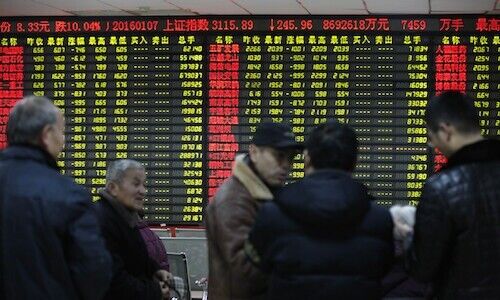After a disappointing first half in 2023, China’s stock market has been rangebound as investors look for signals about the country’s slowing growth. Private banks are divided about the potential for a rebound in the near term.
In 2023, Chinese equities saw a short-lived reopening rally early in the year before the market gave up all returns made and turned rangebound as the economy showed signs of losing steam. Year-to-date, the CSI 300 index is flat with a gain of approximately 0.4 percent.
As of late, the spotlight has been placed on Beijing’s commitment to monetary as well as fiscal stimulus, and whether this will be enough to boost growth momentum. And in the backdrop, markets are also keeping a close eye on US-China tensions as both nations have signalled the desire to improve ties.
Stimulus, Sentiments
For private banks that are not bullish, one major area of concern is the sufficiency of stimulus.
«[I]f the stimulus measures come in later than expected or the magnitude is smaller than the market anticipated, we do expect that the market could remain rangebound,» said Louisa Fok, China equity strategist at Bank of Singapore, which is neutral on Chinese equities.
But even with a looser environment, this may not necessarily translate to output. According to Mark Matthews, APAC head of research at Julius Baer which is also neutral on China, domestic households are saving more and borrowing less which could be a sign of lacking confidence in the economy.
China Bulls
Elsewhere, there is optimism that the Chinese market will turn the corner soon. Even in the event of lacking stimulus, some expect households to eventually release their amassed savings to drive consumption recovery.
«There's no confidence to spend [savings but] that's a lot of fuel once sentiment normalizes,» said Ken Peng, head of investment strategy, APAC at Citi Global Wealth (CGW).
«I can hardly see where there’s any more pessimism that can come in,» added said Deutsche Bank International Private Bank (IPB) APAC chief investment officer (CIO) Stefanie Holtze-Jen. «Peak pessimism has ended.»
Investor Appetite
Nonetheless, investor appetite remains very limited as of late. According to a Bank of America survey in June, just 5 percent of fund managers are holding an overweight position in Chinese equities, compared to 27 percent in April and 39 percent in March.
«People are looking for alternatives to China. A theme we’ve been hearing a lot is, effectively, how to invest outside of China,» observed Min Lan Tan, UBS Global Wealth Management’s head of APAC chief investment office.
«The global equity investor’s bias against Chinese assets has been especially strong,» said a JP Morgan Private Bank report authored by strategists including Tom Kennedy. «Of course investing in China comes with greater risk than investing in many developed markets. But we think certain investors could reap a higher reward for taking that risk in the second half of the year.»
Politburo Meeting
Meanwhile, Beijing convened for the Politburo meeting this week in a highly anticipated event that was expected to provide hints about the country’s policy direction, especially with regards to the economy.
According to an official release, Chinese authorities acknowledged the economic challenges being faced, citing insufficient domestic demand as the main cause. It highlighted the need for proactive fiscal policy, prudent monetary policy, support for small and medium-sized businesses as well as tax reduction.
Interestingly, the release also mentions a focus on «activating» the local stock market, likely to address the poor investor sentiment. Markets responded positively immediately after the meeting with the CSI 300 up around 2.6 percent. But to deliver a sustained rally, markets may need to see statements actually materialize into sufficient and timely support.



























